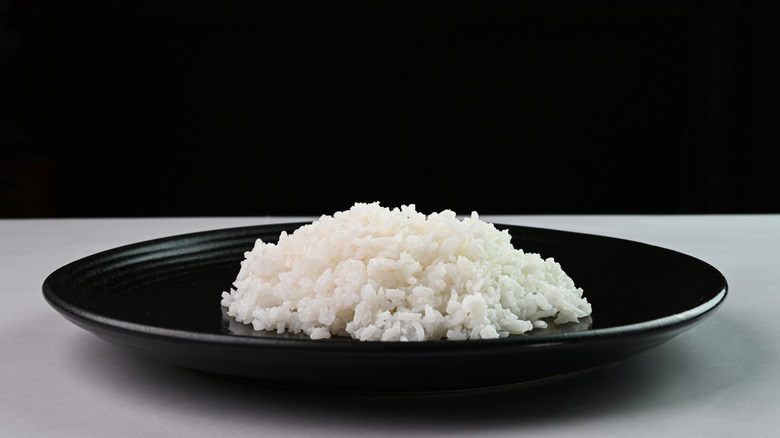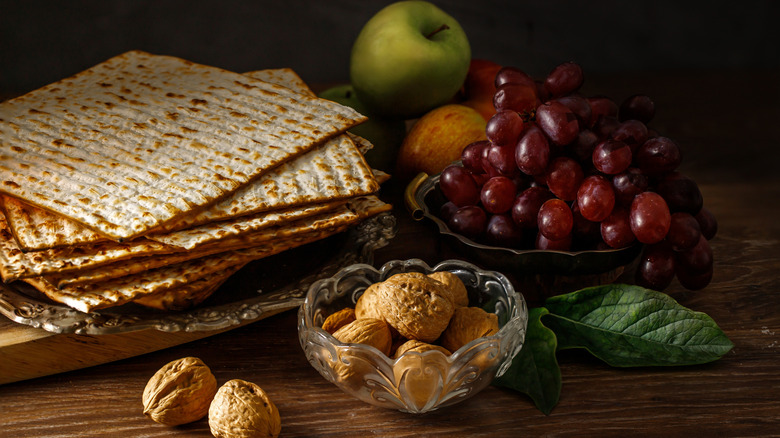Can You Eat Rice During Passover?
Passover or Pesach, a Jewish holiday, is marked with an eight-day observance in which certain foods are prohibited. These foods, which are called chametz, include anything made with leavened or fermented barley, oats, rye, spelt, or wheat. In fact, so verboten are these ingredients that anything containing them (with the exception of unleavened foods like the surprisingly polarizing matzo) must be thrown out, given away, or sold before Passover observances begin. Complicating matters, however, is another category of foods called kitniyot (a word meaning "small things"), and rice falls into this category. Some Jews eat kitniyot during Passover while others do not. In other words, rice is a definite maybe and it all depends on your denomination.
Kitniyot traditionally includes not only rice but also corn, millet, and legumes including peanuts, peas, and soybeans. Other foods that have been considered kitnyot among certain groups include spices like caraway, fennel seed, and mustard. Typically, Sephardic Jews (those with ancient roots in Spain and Portugal) don't consider kitniyot to be prohibited for Passover, but Ashkenazi Jews, a group far more prevalent in North America, observe this dietary restriction (for the most part).
It seems rabbis have been arguing over whether it is okay or not to eat kitniyot during Passover since at least as far back as the 13th century. In 2015, however, a declaration by the Rabbinical Assembly made it official that Conservative Jews, who make up about 15% of the U.S. Jewish population, are now permitted to eat rice and other kitniyot foods while observing Passover.
The dietary law doesn't affect all Jews
Lifting the kitniyot ban for Conservative Jews in the United States is sort of a big deal, even though it only applies to a fairly small denomination in a single country, because it's nice to get some clarity after more than 800 years of rabbinical wrangling. What's more, it greatly expands the range of tasty Passover dishes that can be served up by restaurants or people hosting mixed gatherings of Conservative and Reform Jews during this time of year. For example, relaxing the rice prohibition means it's now possible to enjoy a stir fry made with rice noodles, spring rolls wrapped in rice paper, or a dessert of arroz con leche. Allowing rice in the diet even makes it easier to help your pet keep kosher for Passover, should you be so inclined.
Even so, the newly modified dietary laws don't exactly herald a sweeping change. Reform Jews, who make up approximately 33% of the American Jewish population, have long been permitted to consume rice and other kitniyot foods during Passover. On the other hand, the 8% of Jews in the U.S. who follow the Orthodox tradition may still be shunning kitniyot, along with some of the more conservative-leaning Conservative Jews. No doubt theological arguments will persist in certain quarters as some Jews embrace rice during Passover while others continue to refrain from eating it.

